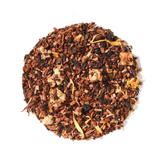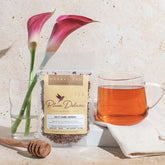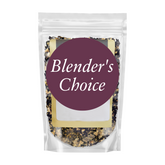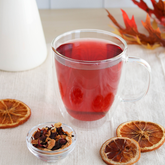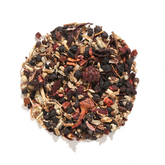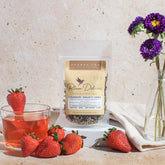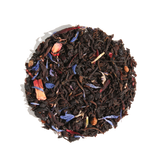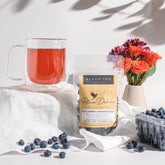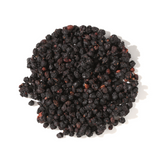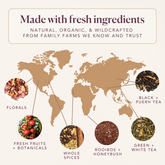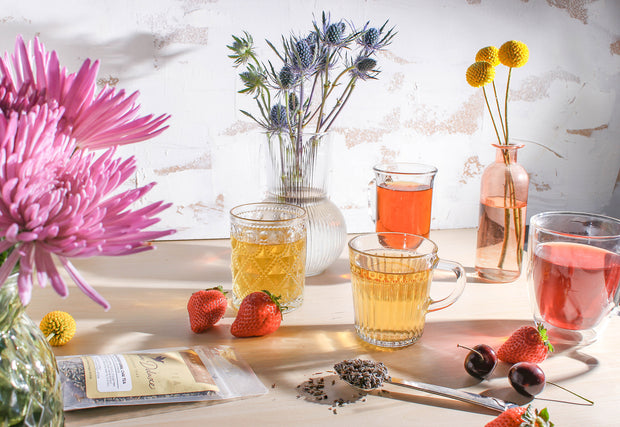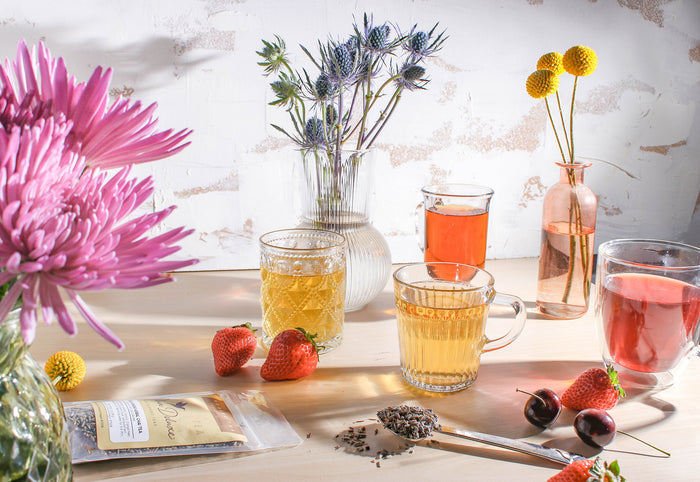As long as there has been alcohol, there have been hangovers. And as long as there have been hangovers, there have been hangover remedies. Long before the days of Shakespeare, dating back to ancient civilizations, humanity has loved to indulge today and repent on the morrow, turning to some truly revolting concoctions to cure a night of revelry.
Luckily for those of us living in the modern age, we can turn to tea. Any time you become, as Shakespeare might put it, “a bottle-ale rascal,” we’ve got the best tea for hangovers to drink “as you like it.”

How Do I Hate Hangovers? Let Me Count the Ways…
Hangovers suck. Plain and simple. The Bard could put it in more elegant terms, but I’m going for brevity. It is, after all, the soul of wit.
You wake up feeling queasy, nauseated, dehydrated, exhausted, with an ache pounding in your head and regret gnawing at your heart. It’s no good.
Scientifically speaking, hangovers stem from a lack of antioxidants, dehydration, and inflammation. Happily, tea can address all of these symptoms in one form or another.
Whether you’re battling a massive headache, nursing an upset stomach, looking for a restorative hair of the dog, or just hoping to sleep the day away until the wretched effects wear off, there is a tea for you!
They will all be infinitely more pleasing to the palate than raw eggs, eel, oyster, or clam juice—all of which were historically ingested by desperate souls after they had “drunk themselves out of their five senses.”
Tea can soothe your poor senses and tickle your tastebuds, and neither eel nor oyster need enter the equation!

“I Have Very Poor and Unhappy Brains for Drinking”
If a headache is what plagues you, brew up a healthy batch of tea with ginger, chamomile, lavender, or peppermint—or some combination of the above.
For nausea, you may want peppermint, ginger, or fennel.
Chamomile and lavender restore and relax. Peppermint invigorates and relieves. Ginger settles and soothes.
Another star player of the hangover-remedy stage is turmeric—it has anti-inflammatory properties, rich antioxidant levels, and—I am told—is good for your liver.
(Please remember I am neither a doctor, apothecary, nor soothsayer. I cannot tell you with certainty how any tea will affect your body. That being said…)
When you wake up after a night of merry-making and your body feels like a comedy of errors, drag yourself moaning and bleary-eyed to your tea cupboard and emerge victorious with any of the following blends:
Cuddletime herbal tea: a classic blend of chamomile and mint, with a splash of creamy vanilla to round it out.
Calm Chamomile Bloom: a relaxing botanical blend of chamomile, lavender, rose, and lemon balm.
Cozy Tranquil Dreams: Soothing chamomile and spearmint are met by invigorating rosehip, orange peel, lemongrass, and hibiscus.
After Dinner Mint Tea: Refreshing peppermint and spearmint team up with calming ginger and clove for a delightful digestive blend.
Rejuvenation Blend: Reset your physical and emotional wellbeing with a time-honored blend of ginger and lemon.
Just Ginger: As the name suggests—simple, straightforward ginger pieces. Ginger by any other name would steep as sweet.
Golden Cacao herbal tea: Restore your sense of balance with a deep, earthy blend of turmeric pieces, cocoa nibs, ginger root, and black peppercorn—accented with aniseed and fennel, and lightened with blackberry leaves and vanilla pieces.
Night Cap herbal tea: Crawl back under the covers and sleep the day away with a drowse-inducing blend of valerian root, chamomile, peppermint, and lemongrass, sprinkled with rosehip and hibiscus.
To paraphrase the Bard, if tea be the cure for hangover, drink on.

“O Thou Invisible Spirit of Wine…Let Us Call Thee Devil.”
Lest we forget, let us take a moment to remember a few key points:
A primary component of a hangover is dehydration. Tea can help combat this, as will good old-fashioned water. (Generally, now much safer to drink than in Shakespeare’s time.)
Despite some ugly rumors to the contrary, tea is hydrating. It’s important to remember, however, that caffeine—like alcohol—is a diuretic and can contribute to dehydration.
On a day when you already feel like Romeo after he drinks the poison, you may be wise to stick to an herbal blend or choose a tea with low caffeine.
On the other hand, while caffeine-free tea will hydrate you without worsening your symptoms, anyone who regularly consumes high amounts of caffeine may need a caffeinated tea or risk a withdrawal-related headache. No one wants a caffeine headache on top of a hangover headache. I believe it was Richard the Third who said, “My kingdom for an Advil!”
Whichever tea you choose, a touch of honey, which is high in antioxidants and good for digestion, could add its own healing properties as well as boosting the tea’s flavor profile.
It will certainly taste better than the tea made from rabbit pellets (which we all know is just a polite word for excrement…) that was consumed in the wild west. That’s right…rabbit poop tea. Thank goodness for Plum Deluxe.
We can also thank Andy and the good people of Plum Deluxe for leaving out powdered human skull (Yes, you read that correctly. Human. Skull.) and dried viper. (Viper! It bears repeating.) This ghastly draught was yet another mind-blowing concoction said to cure a night of excess in 17th century England.
To the best of my knowledge, none of the other thoughtfully selected ingredients at Plum Deluxe include pickled sheep’s eyeballs, fried canary, animal brains, entrails, or testicles—all time-tested hangover cures from the history books.
I myself will stick to chamomile.
“I Drink to the General Joy of the Whole Table”
All this talk of the best tea for hangovers could be much ado about nothing if you remember to drink plenty of water between libations and enjoy yourself in moderation.
But for those times when you’ve had too much and find yourself in the winter of your discontent, brew yourself a soothing pot of Plum Deluxe tea and remember: all’s well that ends well.
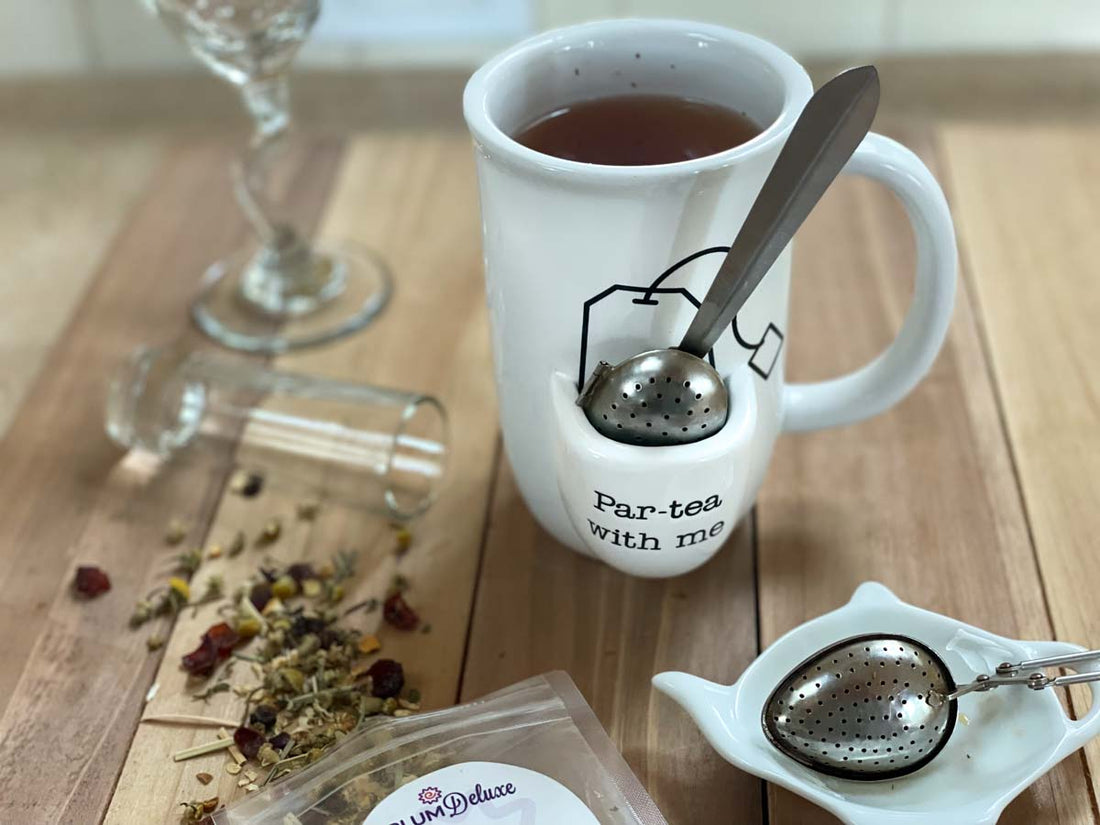
!['Chocoholic' Chocolate Tea Variety Pack [6-Pack Variety of Flavors]](http://www.plumdeluxe.com/cdn/shop/files/2.01-1800x1800-PlumDeluxe-DAJ-274695.jpg?v=1736886689&width=165)
![Patisserie Dessert Tea Variety Pack [6-Pack Variety of Flavors]](http://www.plumdeluxe.com/cdn/shop/files/4.01_-_1800_x_1800_-_Plum_Deluxe_-_DAJ_-_274695.jpg?v=1736886720&width=165)

